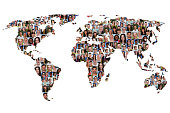
Tongues wagged when Cuban-born and Spanish-raised actress, Ana de Armas, was cast to play Marilyn Monroe in the Netflix movie “Blonde”. According to the media, director Andrew Dominik (a New Zealand-born Australian) admitted hesitating to give her the role because of her accent and had only recently learnt English as a second language.
Is accent important in an individual’s career?
A US-based startup Sanas has developed software that uses artificial intelligence (AI) to mimic a person’s accent on the phone and modify this when responding through a phone or computer microphone. Apparently, this new technology reduces abuse from native English speakers of call centre staff who do not have their accents. Its proponents believe it leads to better clarity and understanding and improves customer satisfaction.
Accents are a vital part of our history and identity; they give clues about who we are and the cultural community or national group we belong to. Everyone has an accent; these different accents showcase the richness of our world and its cultures.
English is an international language, and there are more non-native than native speakers who use it regularly. The issue is to communicate with others, i.e. understand and be understood, not accents.
An accent is not the same as pronunciation. You can get a pronunciation ‘right’ or ‘wrong’, but there’s no right or wrong accent.
My former student used to pronounce analysis “analaiz” (the correct pronunciation is “ə-na-lə-səs”). One of her sentences was: “This analaiz domontrit the importance of flexibility at work”. French native speakers do not pronounce the ending letter “s” of words in their language. The letter “e” sounds “o” (e.g. peu, which means little in English, is pronounced as “po”). They pronounce the English letter “e” as “e” only when it has a grave accent (è), as in mère (mother) and père (father).
If you mispronounce, you can be misunderstood. However, a person can speak English flawlessly with whatever accent. Even among native speakers, there are many accents. Last year, our supervisor asked me if I wanted to take over a class; this was our conversation —
S: We have a client who is not easy to please. She wants to improve her English and have a British accent. Do you have a British accent?” (As if he had not heard me speak before).
R: Which one? Scottish, Irish, Welsh, London English, Liverpool English, BBC English?
S: I don’t know. She didn’t specify. Any of these will do.
R: Ninguno de estos.
S: Perhaps you can still take her. You’ve said that you like teaching challenging students.
R: Thanks, but I’m afraid it’s NO. I go for learners with a half-full glass mentality and a good sense of humour, in addition to being motivated and proud of their cultural and linguistic heritage.
When your pronunciation is correct, you can communicate effectively with others, whatever your accent. In business and financial environments, airports, touristic places and universities, people speak English as a second or third language, a lingua franca. Thus, the goal of having a native speaker’s accent is irrelevant.
To understand our fellow humans and communicate with them successfully, we have to come into contact with different accents so that we can cope with the real people in the real world.


